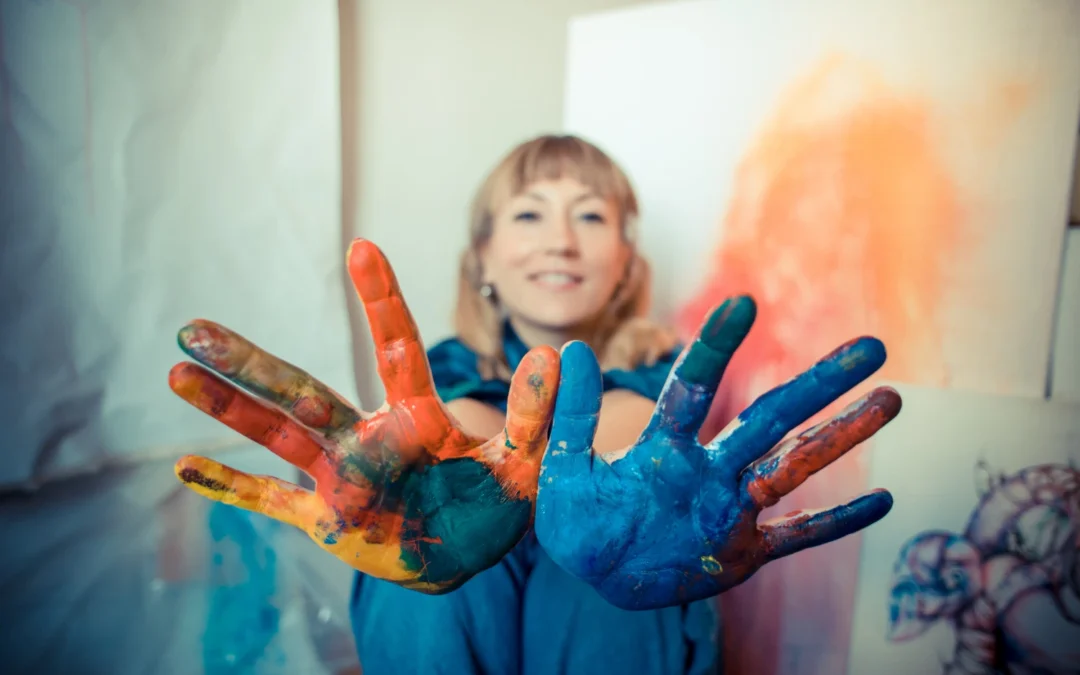The Role of Holistic Therapy in Mental Health Treatment
Mental health treatment has evolved beyond traditional therapy and medication, incorporating holistic approaches that address the mind, body, and spirit. Holistic therapy, which includes yoga, meditation, and art therapy, has gained recognition for its effectiveness in supporting emotional well-being and addiction recovery. Among these methods, art therapy for addiction recovery stands out as a powerful tool that helps individuals express emotions, process trauma, and develop healthy coping mechanisms.
Holistic therapies emphasize personalized healing, acknowledging that each individual’s recovery journey is unique. By integrating alternative treatments with conventional methods, holistic therapy fosters a comprehensive and sustainable recovery process. These approaches are particularly effective in dual diagnosis cases, where individuals struggle with both addiction and underlying mental health conditions, such as depression, anxiety, or PTSD.
Understanding Art Therapy for Addiction Recovery
What Is Art Therapy?
Art therapy is a form of psychotherapy that encourages self-expression through creative activities like painting, drawing, sculpting, and other artistic mediums. It is guided by trained therapists who help individuals explore emotions and overcome psychological challenges. Unlike traditional talk therapy, art therapy allows for non-verbal communication, making it especially beneficial for those struggling to express their feelings.
Creative expression has long been recognized as a therapeutic outlet. Engaging in art can stimulate neuroplasticity, helping the brain develop new pathways that promote healthier coping mechanisms. Research shows that creating art releases dopamine, the brain’s natural feel-good chemical, which plays a significant role in addiction recovery by counteracting the brain’s dependency on substance-induced dopamine surges.
Leading with Art Therapy for Addiction Recovery
Addiction often stems from unresolved trauma, stress, or mental health disorders. Art therapy for addiction recovery provides a safe and constructive outlet for individuals to process their experiences. Through creative expression, participants can:
- Reduce stress and anxiety: Engaging in art-making lowers cortisol levels, promoting relaxation.
- Enhance self-awareness: Artistic activities help individuals understand their emotions and triggers.
- Develop healthier coping skills: Instead of turning to substances, individuals can channel emotions into creativity.
- Improve communication skills: Art provides a way to express feelings that may be difficult to verbalize.
- Boost self-esteem: Completing an artwork fosters a sense of accomplishment and self-worth, which is crucial in rebuilding confidence after addiction.
In structured drug rehabilitation programs, therapists often incorporate guided art exercises, such as mandala creation, vision boards, and expressive journaling, to help individuals articulate their emotions in a visual, tangible form. These activities not only serve as an emotional release but also as a valuable self-discovery tool in recovery.
Other Holistic Approaches That Enhance Mental Health Treatment
Yoga for Emotional Balance
Yoga is a mind-body practice that combines movement, breathwork, and meditation. It plays a significant role in mental health treatment by:
- Reducing stress and depression through mindfulness techniques.
- Enhancing emotional resilience by promoting self-discipline and self-awareness.
- Regulating the nervous system, helping individuals manage withdrawal symptoms and anxiety.
- Improving sleep quality, which is essential for emotional and physical healing.
- Encouraging physical activity, which naturally boosts endorphins and improves overall well-being.
Meditation and Mindfulness for Recovery
Mindfulness practices, including meditation, train the brain to focus on the present moment. These techniques help individuals in recovery by:
- Decreasing cravings and emotional triggers.
- Promoting emotional regulation, leading to better decision-making.
- Encouraging a sense of inner peace, reducing feelings of guilt and shame related to addiction.
- Improving impulse control, which is essential for avoiding relapse.
- Fostering gratitude and self-compassion, helping individuals rebuild self-worth.
Music and Dance Therapy for Emotional Release
Like art therapy, music and dance therapy encourage self-expression and healing. These therapies help individuals:
- Process emotions non-verbally through movement and sound.
- Release pent-up stress and trauma in a safe and supportive environment.
- Develop a stronger sense of self, improving confidence and motivation in recovery.
- Strengthen social connections, as group music and dance sessions foster a sense of belonging and support.
The Science Behind Holistic Therapy in Addiction Recovery
Studies show that holistic therapies significantly improve mental health outcomes in addiction recovery. Research indicates that:
- Individuals who engage in art therapy for addiction recovery experience reduced relapse rates.
- Yoga and mindfulness practices lower stress hormones and enhance emotional stability.
- Music therapy has been shown to increase dopamine levels, reducing withdrawal symptoms.
- Expressive therapies promote right-brain activation, enhancing emotional processing and cognitive flexibility.
- Holistic therapies complement traditional treatments, making recovery more effective and sustainable.
Integrating Holistic Therapy into a Recovery Plan
For holistic therapy to be effective, it should be integrated into a comprehensive behavioral treatment program Many rehab centers and mental health facilities now offer art therapy for addiction recovery alongside cognitive behavioral therapy (CBT), group therapy, and medication-assisted treatment (MAT). This combination provides individuals with a well-rounded approach to healing, addressing both the psychological and emotional aspects of addiction recovery.
Additionally, self-care practices at home can reinforce holistic healing. Encouraging individuals in recovery to maintain a personal art journal, engage in daily mindfulness exercises, or participate in community art workshops can provide ongoing emotional support beyond formal treatment settings.
Explore Holistic Therapies
Recovery is not just about overcoming addiction; it’s about rediscovering joy, purpose, and self-expression. If you or a loved one is struggling with addiction, exploring holistic therapies may be the key to a healthier and more fulfilling life.


